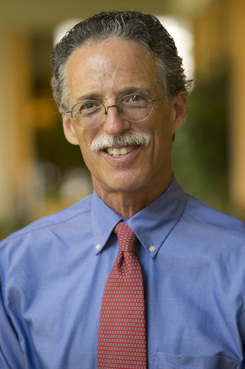A Hearsay Rules Revision That Could Use Some Clarification
Jules EpsteinOn Oct. 25, the Pennsylvania Supreme Court adopted two amendments to the Pennsylvania Rules of Evidence—the definitions of "Present Sense Impressions" and "Excited Utterances" both had new language added. Each rule now concludes with the following statement:
November 08, 2018 at 12:15 PM
5 minute read
 Jules Epstein
Jules Epstein
On Oct. 25, the Pennsylvania Supreme Court adopted two amendments to the Pennsylvania Rules of Evidence—the definitions of “Present Sense Impressions” and “Excited Utterances” both had new language added. Each rule now concludes with the following statement:
“When the declarant is unidentified, the proponent shall show by independent corroborating evidence that the declarant actually perceived the event or condition.” The new rules and comments can be found here.
The comment to each rule was also amended, with the following language inserted: “This rule differs from its Federal Rules of Evidence counterpart insofar as it requires independent corroborating evidence when the declarant is unidentified.”
On its surface, the changes merely reflect Pennsylvania decisional law requiring some corroborating proof that the declarant perceived the event when the speaker's identity is unknown. See, Commonwealth v. Upshur, 2000 PA Super 376, 19, 764 A.2d 69, 76 (“Appellant has not shown by other corroborating evidence that the statement of identity made by the unidentified motorist was made by a declarant who had actually viewed the event”); Commonwealth v. Hood, 2005 PA Super 93, 20, 872 A.2d 175, 181-82 (“In order to assure that an unidentified bystander actually witnessed an event which is relevant at the time of trial … it is incumbent upon the party seeking the admission of the out-of-court statement to demonstrate by the use of 'other corroborating evidence' that the declarant actually viewed the event 'of which he speaks.'”).
So what are the dangers? The changes arguably imply that when the declarant's identity is known no proof that the speaker perceived the event is needed. If that is how any lawyer or judge reads the rules, that person is mistaken.
Personal knowledge—proof that the incident or condition being described was actually seen, smelled, touched, tasted or heard—is required for all hearsay evidence other than party opponent admissions. The reason is simple—if we won't allow a live witness to testify to things he could not have perceived, then a hearsay declarant may not somehow do so. As one court explained,
“Courts require that declarants of a hearsay statement have firsthand knowledge before the hearsay statement is admissible … The party offering a statement has the burden of proving personal knowledge. In a hearsay situation, the declarant is, of course, a witness …”
The rationale for requiring a hearsay declarant to have personal knowledge when the declarant's statement is admitted for its truth is identical to the rationale for requiring a witness to have personal knowledge of the subject matter of the witness' testimony. In the absence of personal knowledge, a witness's testimony or a declarant's statement is no better than rank hearsay or, even worse, pure speculation. The admission of a hearsay statement not based on personal knowledge puts the fact finder in the position of determining the truth of a statement without knowledge of its source and without any means of evaluating the reliability of the source of the information, as in People v. Valencia, 146 Cal. App. 4th 92, 103-04, 52 Cal. Rptr. 3d 649, 657 (2006).
Pennsylvania caselaw predating the adoption of the current Rules of Evidence acknowledged as much, requiring personal knowledge even for a dying declaration: “What needs to be shown is that the victim had the opportunity to observe the facts that he declares … Where there is room for doubt as to whether the victim's statement is based on personal knowledge, it is a question for the jury. It is only when it is clear that the victim had no opportunity to observe the facts that he declares that a dying declaration is inadmissible for want of personal knowledge,” as in Commonwealth v. Griffin, 453 Pa. Super. 657, 666, 684 A.2d 589, 593 (1996). Griffin makes clear that while the threshold for finding personal knowledge may be low, it still applies to hearsay.
So, what should the Evidence Rules Committee amendments be taken to mean? Not that personal knowledge is required, and must be independently corroborated, only when the declarant is unknown. The more accurate statements of law are as follows:
- For all hearsay except statements of a party opponent, there must be some evidence from which the finder of fact may conclude that the declarant perceived what is being described.
- When the declarant is identified, that may include the declarant's own words (e.g., “Oh my, I just saw Jack push Jill”) or other circumstantial evidence.
- When the declarant is unidentified, the proponent of a present sense impression or an excited utterance must show by independent corroborating evidence that the declarant actually perceived the event or condition.
Anything less strips hearsay evidence of a proper foundation; and anything less permits trials on guesses and speculation.
Jules Epstein is a professor of law and director of advocacy programs at Temple University's Beasley School of Law. He is a former partner at Philadelphia criminal defense and civil rights firm Kairys, Rudovsky, Messing & Feinberg, where he remains of counsel. Epstein teaches criminal law and evidence courses at the university.
This content has been archived. It is available through our partners, LexisNexis® and Bloomberg Law.
To view this content, please continue to their sites.
Not a Lexis Subscriber?
Subscribe Now
Not a Bloomberg Law Subscriber?
Subscribe Now
NOT FOR REPRINT
© 2025 ALM Global, LLC, All Rights Reserved. Request academic re-use from www.copyright.com. All other uses, submit a request to [email protected]. For more information visit Asset & Logo Licensing.
You Might Like
View All
No Pa. Case Has Ever Adjudicated a Claim to Enforce an Environmental Covenant Imposed Under 'Act 2'—Does That Matter?
7 minute read
Superior Court Rejects Pa. Hospital's Challenge to $7.3M Med Mal Judgment
3 minute read
Pittsburgh Judge Rules Loan Company's Online Arbitration Agreement Unenforceable
3 minute read
De-Mystifying the Ethics of the Attorney Transition Process, Part 1
Trending Stories
- 1Supreme Court Takes Up Challenge to ACA Task Force
- 2'Tragedy of Unspeakable Proportions:' Could Edison, DWP, Face Lawsuits Over LA Wildfires?
- 3Meta Pulls Plug on DEI Programs
- 4On the Move and After Hours: Meyner and Landis; Cooper Levenson; Ogletree Deakins; Saiber
- 5State Budget Proposal Includes More Money for Courts—for Now
Who Got The Work
Michael G. Bongiorno, Andrew Scott Dulberg and Elizabeth E. Driscoll from Wilmer Cutler Pickering Hale and Dorr have stepped in to represent Symbotic Inc., an A.I.-enabled technology platform that focuses on increasing supply chain efficiency, and other defendants in a pending shareholder derivative lawsuit. The case, filed Oct. 2 in Massachusetts District Court by the Brown Law Firm on behalf of Stephen Austen, accuses certain officers and directors of misleading investors in regard to Symbotic's potential for margin growth by failing to disclose that the company was not equipped to timely deploy its systems or manage expenses through project delays. The case, assigned to U.S. District Judge Nathaniel M. Gorton, is 1:24-cv-12522, Austen v. Cohen et al.
Who Got The Work
Edmund Polubinski and Marie Killmond of Davis Polk & Wardwell have entered appearances for data platform software development company MongoDB and other defendants in a pending shareholder derivative lawsuit. The action, filed Oct. 7 in New York Southern District Court by the Brown Law Firm, accuses the company's directors and/or officers of falsely expressing confidence in the company’s restructuring of its sales incentive plan and downplaying the severity of decreases in its upfront commitments. The case is 1:24-cv-07594, Roy v. Ittycheria et al.
Who Got The Work
Amy O. Bruchs and Kurt F. Ellison of Michael Best & Friedrich have entered appearances for Epic Systems Corp. in a pending employment discrimination lawsuit. The suit was filed Sept. 7 in Wisconsin Western District Court by Levine Eisberner LLC and Siri & Glimstad on behalf of a project manager who claims that he was wrongfully terminated after applying for a religious exemption to the defendant's COVID-19 vaccine mandate. The case, assigned to U.S. Magistrate Judge Anita Marie Boor, is 3:24-cv-00630, Secker, Nathan v. Epic Systems Corporation.
Who Got The Work
David X. Sullivan, Thomas J. Finn and Gregory A. Hall from McCarter & English have entered appearances for Sunrun Installation Services in a pending civil rights lawsuit. The complaint was filed Sept. 4 in Connecticut District Court by attorney Robert M. Berke on behalf of former employee George Edward Steins, who was arrested and charged with employing an unregistered home improvement salesperson. The complaint alleges that had Sunrun informed the Connecticut Department of Consumer Protection that the plaintiff's employment had ended in 2017 and that he no longer held Sunrun's home improvement contractor license, he would not have been hit with charges, which were dismissed in May 2024. The case, assigned to U.S. District Judge Jeffrey A. Meyer, is 3:24-cv-01423, Steins v. Sunrun, Inc. et al.
Who Got The Work
Greenberg Traurig shareholder Joshua L. Raskin has entered an appearance for boohoo.com UK Ltd. in a pending patent infringement lawsuit. The suit, filed Sept. 3 in Texas Eastern District Court by Rozier Hardt McDonough on behalf of Alto Dynamics, asserts five patents related to an online shopping platform. The case, assigned to U.S. District Judge Rodney Gilstrap, is 2:24-cv-00719, Alto Dynamics, LLC v. boohoo.com UK Limited.
Featured Firms
Law Offices of Gary Martin Hays & Associates, P.C.
(470) 294-1674
Law Offices of Mark E. Salomone
(857) 444-6468
Smith & Hassler
(713) 739-1250





